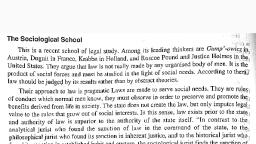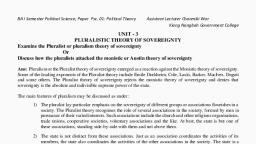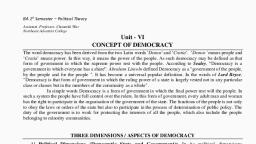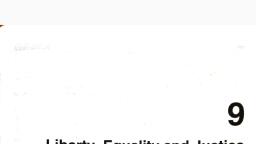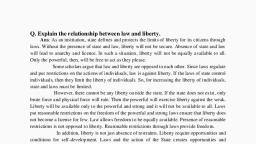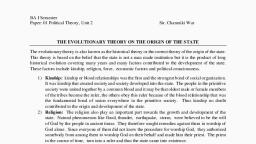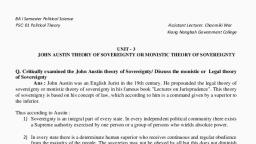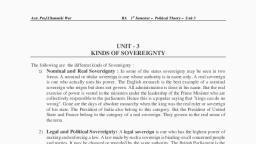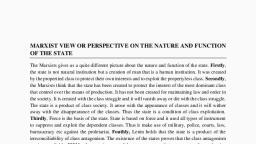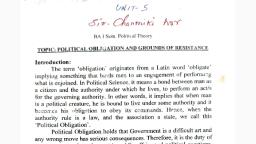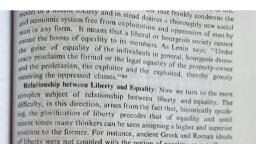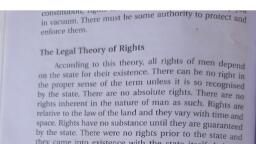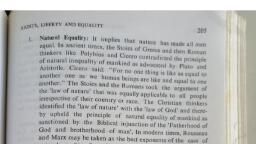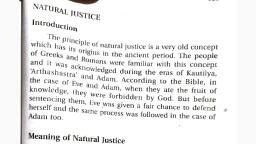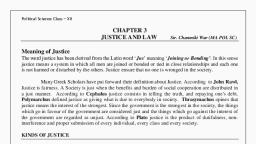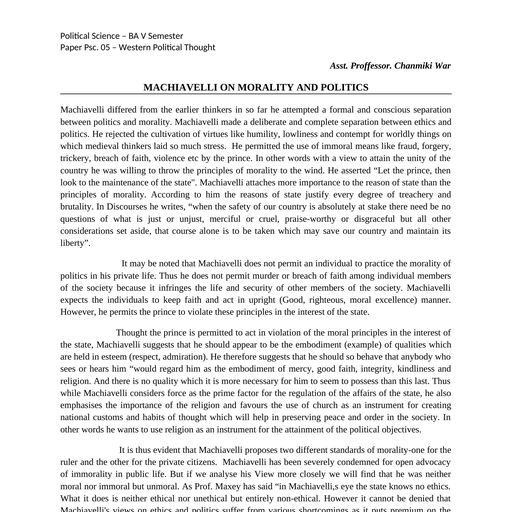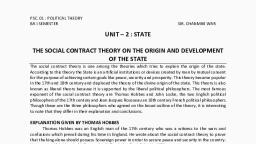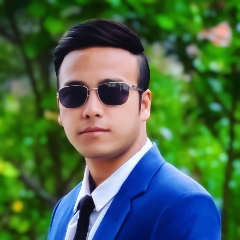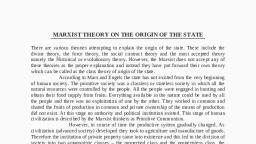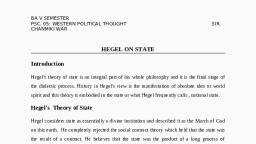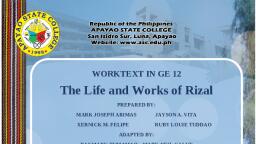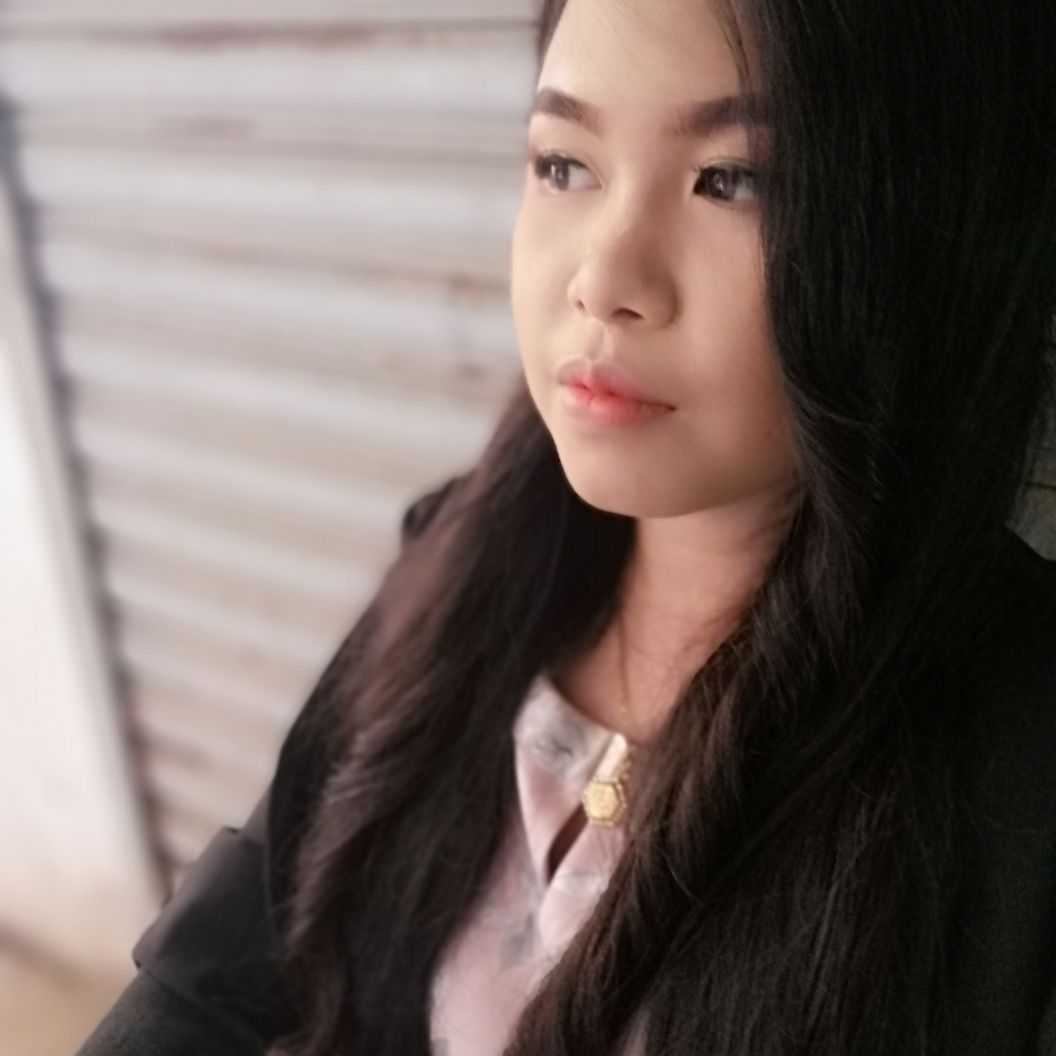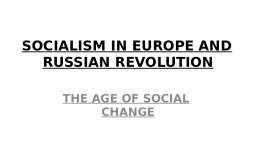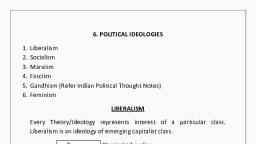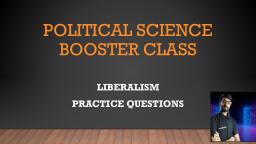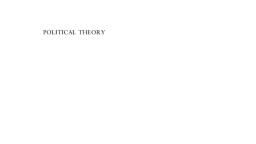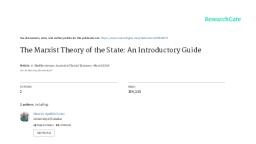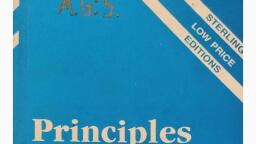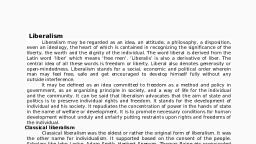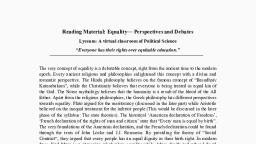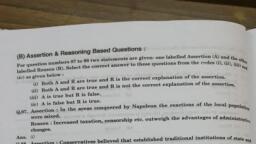Page 1 :
THE LIBERAL VIEW or PERSPECTIVE ON THE NATURE AND, FUNCTIONS OF THE STATE, The liberal theory of state was developed by Philosophers like John Locke, Bentham, Laski, T.H, Green, J.S Mill and some other Philosophers. The liberal perspective of the state is quite dynamic, and has been undergoing changes from time to time depending on the interests and needs of the, individual and society. While the early (classical) liberal thinkers regarded the state as negative, and evil and favoured non-interference in the affairs of the individual, but in the twentieth century, the modern liberals thinkers regarded the state as the positive and welfare state and favoured, interference by the state in the affairs of the individual., The liberal thinkers laid emphasis on the following features or principles in their, theory of state., 1. Firstly, The liberals believed that the state is an artificial institutions created by man at some, stage of history to protect them. In other words it was created as a result of an agreement signed, by men., 2. Secondly, Classical liberals regards the state as a necessary evil because it poses certain, restrictions on the freedom of the individual. The state should leave the individual alone and let, him do whatever he please. In fact the state is necessary only to protect the individual from violence,, and to check chaos and disorder in society. On the other hand the modern liberalism regards the, state as a welfare state., 3. Thirdly, the liberals give more importance to the individual than to the state. State exists for, man and not man for state. The state is only one of the many associations created by men for their, welfare and development. Thus the state is not an end in itself but a means to that end i.e the, individual., 4. Fourthly, the liberals believed that the government which governs the least is the best. They, wanted the state to perform only limited functions viz. Protection of individual against external, and internal enemies. John Locke assigned to the state the functions of protection of life, liberty, and property., 5. Fifthly, the liberals believed that the state is pluralist in character and it is based on cooperation., There are a number of associations and organizations in the society which help the state to achieve, its aim and purposes for the welfare of the people., 7. Seventhly, the liberals believed in democracy based on the principles of equality in which every, adult exercised franchise without any discrimination based on caste, creed, sex, language, religion, etc., 8. Eightly, liberals believed on the principles of free market, and non-interference of the state in, economic affairs. If the individual are left free in economic sphere they will try to make the best, use of the available opportunities and promote the interests of the consumers by providing them, goods at competitive rates.
Page 2 :
CRITICISM, The liberals perspective of state has been criticized on several grounds:, 1. It is wrong to say that the state is an artificial creation devised by man at some stage of history, to protect them. In fact the state is a natural institution. It is a historical growth and it has taken a, number of centuries to reach its present condition., 2. The classical liberals view the state as a necessary evil is no longer accepted. It is incorrect to, say that laws and control by the state restrict individual liberty. Rather such control and laws of, the state protects liberty., 3. The Marxists have alleged that the liberal state is a class state which promotes the interest of the, capitalists and contributes to the exploitation of the proletariat., 4. State is not like other association. State cannot be given the same status as any other Association, like Trade Union or students association. It is the only association which is sovereign and whose, membership is compulsory. Moreover, it has supreme authority both internally as well as, externally.

